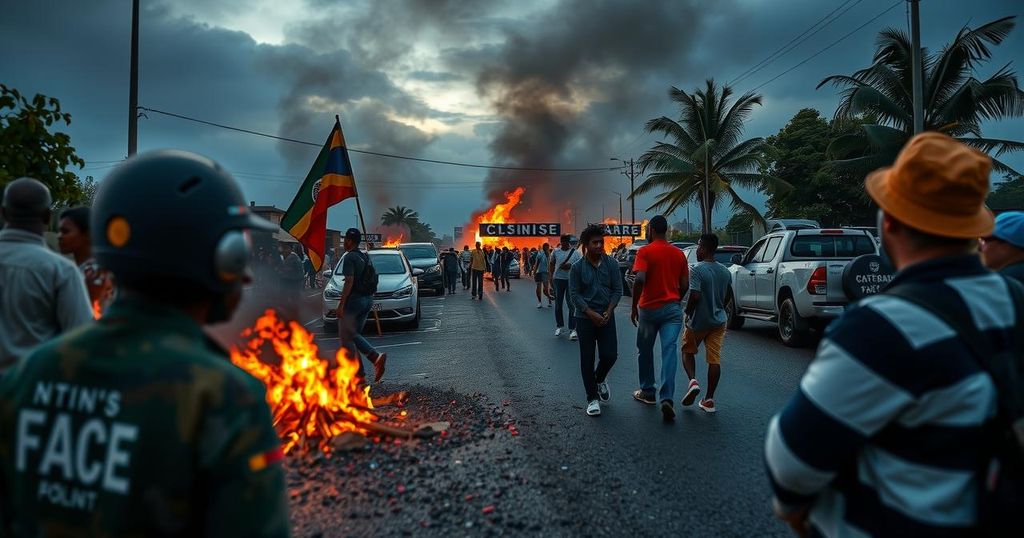Mozambican protests following the disputed October 9 elections have escalated, leading to violence and widespread calls for reform. Opposition leader Venancio Mondlane urges citizens to demonstrate against FRELIMO’s alleged electoral fraud, while the government employs forceful methods to quell unrest. The closure of the South African border adds to the growing humanitarian crisis as clashes continue.
In Mozambique, ongoing protests follow the contentious elections held on October 9, where the ruling party FRELIMO secured victory amidst allegations of electoral fraud. Opposition leader Venancio Mondlane of the PODEMOS party has called for mass demonstrations, expressing fears over a potential assassination attempt made against him. Meanwhile, the government has responded with heavy-handed tactics, including tear gas and gunfire, leading to numerous fatalities and injuries during protests. Internet access is sporadically restricted in efforts to control the unrest, while significant disruptions occur at the Mozambican-South African border following vandalism of trucks. As the situation escalates, various professional organizations warn of a looming humanitarian crisis.
The political climate in Mozambique has been marked by instability following the recent elections. FRELIMO, the long-standing ruling party, claims victory while opposition groups reject the legitimacy of this outcome due to allegations of fraud. The call for protests by Mondlane suggests a critical shift in public sentiment toward governance, safety, and civil rights. Furthermore, the violent clashes reflect deep-rooted tensions within Mozambican society, potentially leading to larger consequences for regional stability and governance.
The protests in Mozambique reveal a significant societal divide fueled by alleged electoral fraud, government repression, and popular discontent. The situation underscores the potential for escalation into wider unrest, particularly if calls for reform remain unaddressed. Observers must monitor developments closely, as the response of both the government and the populace will be crucial in shaping the future political landscape of Mozambique.
Original Source: www.fides.org






